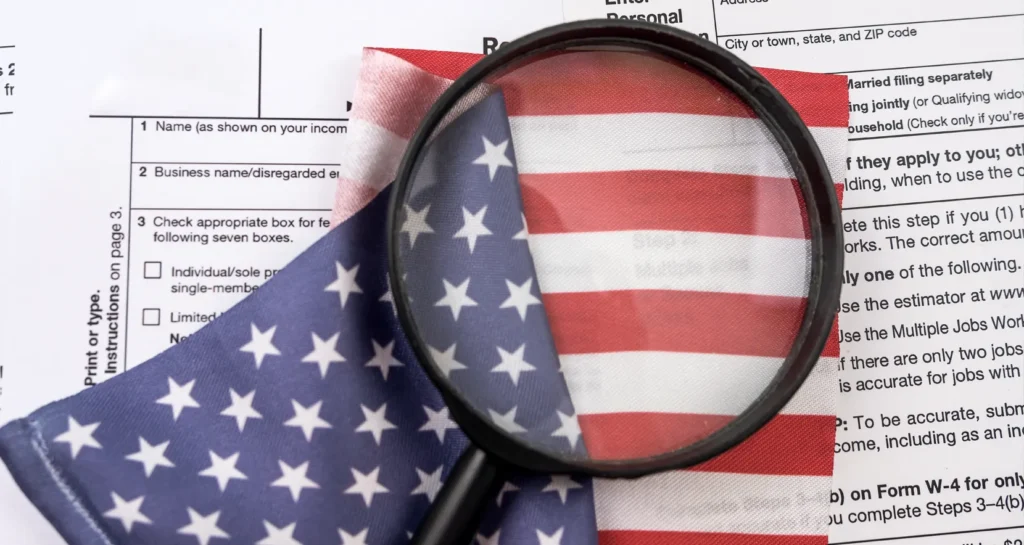
At the time of starting the EB-5 visa application process, investors who wish to apply must understand all the stages involved in this procedure.
This program, which allows foreign investors the possibility of obtaining permanent residency in the United States, is made up of several steps that can lead to acquiring a permanent green card.
However, this process may be interrupted and the request may be denied. Understanding the reasons for denial of the application is essential to avoid setbacks and increase the chances of success within the EB-5 program.
Inadequate investment
The unsuitability of the investment is one of the main reasons why an EB-5 visa application may be denied.
First of all, the funds used for the investment must come from legal and legitimate sources. This means that applicants must be able to prove the legal origin of the invested funds.
Furthermore, the investment made must comply with the established minimum capital requirements through the EB-5 program, which varies from $900,000 to $1,800,000 depending on the area where it is invested.
If the investment made is less than the minimum amount required, the application may be rejected. For this, it is important to correctly calculate the investment amount and ensure that it is sufficient to meet program requirements.
Another important consideration is that the investment must go to a qualified project that meets the criteria established by the EB-5 program. This includes creating or preserving jobs, investing in designated areas or qualified projects, and complying with relevant laws and regulations. If the investment is not used for a project that meets these criteria, the application may be denied.
For the investment to conform to the requirements of the EB-5 program, it is very important to conduct thorough due diligence, ensuring that the investment is appropriately allocated to a qualified project that meets all the requirements of the EB-5 program.
Failure to meet employment requirements
Failure to meet employment requirements is another common cause of denial of EB-5 visa applications.
To align with the program requirements, it is necessary that the project in which the investment is made create ten full-time jobs. These jobs must meet the specific criteria of the EB-5 program, and must be created within the established deadline.
It is also critical to maintain the minimum number of jobs during the period specified by the EB-5 program. If the number of jobs generated does not meet the requirements or if these are not maintained for a certain period, the application may be rejected.
Lastly, it is necessary to provide evidence that supports job creation in the project. This includes detailed documentation about the jobs created, such as payroll records, tax returns, and other financial documents.
If sufficient evidence is not provided to support job creation, the application may be denied, so it is essential to meet all employment requirements established by the EB-5 program, as well as provide appropriate documentation to support job creation. employment in the project.
Documentation problems
Documentation problems are responsible for the denial of EB-5 visa applications. This may include uncompleted forms, missing documents, or incorrect information, which may result in application rejection.
Additionally, sufficient evidence must be provided to support the source of the funds used for the investment. This includes financial documents, bank statements, transaction records and any other relevant documentation demonstrating the legality and legitimacy of the funds.
In cases where the evidence presented is not sufficient to support the source of funds, the request may be denied.
Lastly, the lack of clarity or consistency in documentation submitted may also be of concern to application reviewers. For evaluation, this documentation must be clear, precise and coherent to facilitate the process.
In the event of discrepancies or inconsistencies in the documentation presented, doubts may arise about the veracity of the request and lead to its denial.
Lack of compliance with rules and regulations
Failure to comply with rules and regulations may result in denial of EB-5 visa applications.
Any violation of immigration laws or EB-5 program regulations may result in denial, including actions that violate the terms and conditions of the EB-5 program (such as improper transfer of funds), failure to comply with requirements job creation or any other activity that does not comply with established regulations.
Additionally, if changes occur in immigration laws or EB-5 program policies that affect your application’s eligibility, your application may be denied.
To avoid the latter, it is important to stay informed about any changes in regulations and policies related to the EB-5 program, and adjust the request accordingly to avoid regulatory compliance issues.
Applicant suitability
Applicant suitability issues are another factor that can lead to denial of the EB-5 visa application.
First and foremost, an applicant’s criminal record or prior legal issues may raise concerns for application reviewers. If the applicant has a history of crimes or legal violations, this impacts their eligibility to receive an EB-5 visa.
Likewise, a problematic or insufficient financial history may raise concerns for application reviewers. If the applicant has a history of financial problems, such as bankruptcies, bankruptcy, or significant debt, this may call into question your ability to meet the investment requirements of the EB-5 program.
Errors in the application
Omitting important information can lead to your application being rejected, so it is important to provide all necessary details and complete each section of the application thoroughly to avoid this problem.
Including incorrect or inconsistent information may also result in denial of the application. Any discrepancy between the information provided in the application and supporting documentation may call into question the veracity of the application and affect its outcome.
Finally, failure to meet established deadlines or submission requirements may be grounds for rejection. It is important to ensure that you submit your application within the established deadline and comply with all filing requirements to avoid problems of this type. Timeliness and accuracy are key in the EB-5 visa application process to avoid errors that could result in application denial.
